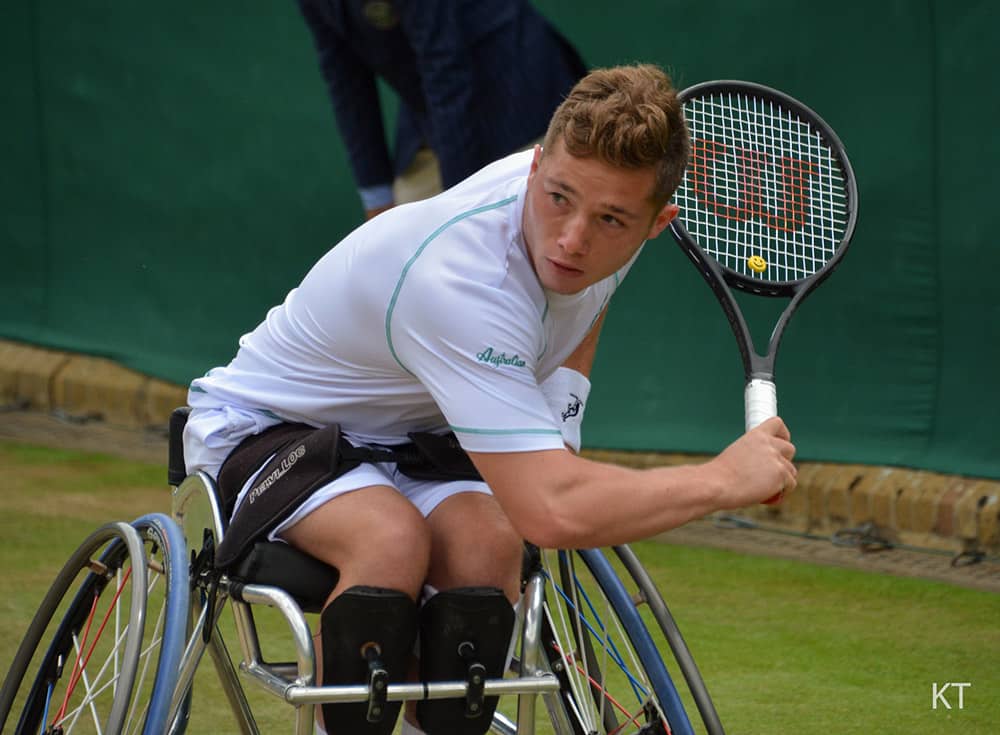Guest Article: How the UK can overcome the barriers blocking participation in disability sport

Paralympic world-record holder Hannah Cockroft blames rising expectations and a lack of early opportunities for the “alarming” decline in disability sport participation.
Speaking in law firm Irwin Mitchell’s new podcast, ‘Let’s Talk About It’, which discusses what it’s really like to live with a disability, Hannah addresses the problem and suggests ways that the authorities and the media can help to get more disabled people involved in sport.
While the 2012 London Paralympic games started to change perceptions of disability sport, Sport England figures show that the level of participation in such activities has fallen by 10 percent since the competition.
So what are the major barriers blocking people with disabilities from taking part in sport and how can they be overcome?
Irwin Mitchell spoke to Hannah and Wimbledon wheelchair tennis champion Alfie Hewett about what can be done to increase participation in disability sport.
Losing the ‘superhuman’ label
While the London Paralympics depicted disabled athletes in an incredibly positive light, some believe that the hype has actually had an adverse effect on general participation levels, says Irwin Mitchell. The athletes were labelled ‘superhuman’ by some people and media, but, rather than inspiring those with disabilities, the term has increased the level of expectation.
Hannah believes that some disabled people are discouraged from taking up sport because they are now expected to perform at high levels.
She commented: “I’ve met so many disabled people since London 2012 who have said ‘I want to get involved with sport’, but when I’m pushing down the street, everyone asks ‘why are you not on the track against Dave Weir or Jonnie Peacock or whoever?’
“Suddenly we got labelled the ‘superhumans’, during London, but it wasn’t just the Paralympians who got labelled, it was disabled people in general. As disabled people, not everyone wants to be a Paralympian.”
Irwin Mitchell adds that this pressure to succeed can be off-putting, which makes it important to emphasise that sport is about much more than getting to the top. For example, the law firm says regardless of the standard, the social benefits of taking part are significant. From making new friends to feeling part of a team, sport can have a positive impact on people’s lives and can help to promote social inclusion.
After Alfie was diagnosed with Pethes Disease at the age of six, sport played a key role in helping him to adjust.
He commented: “When I started my sporting career in a wheelchair, it was more for the social element. I was isolating myself, so by going to play wheelchair basketball and joining a wheelchair tennis group with other disabled people, it helped me to find myself again.
“At first it was never about being a Paralympian or being a top level athlete. At seven years old, it was just for that fun and enjoyment.”
To help combat this issue, Irwin Mitchell is calling on the media, policymakers and the general public to prioritise mass participation instead of just praising those at the elite level. It adds that doing so could increase the perceived accessibility of sport for those considering getting involved.
Early opportunities
Whilst growing up, Hannah and Alfie were excluded from school P.E. lessons. According to the law firm, this is an issue that many disabled children still face. This could be for a number of reasons, notes Irwin Mitchell, such as a lack of appropriate equipment or teacher training.
However, Irwin Mitchell says that this segregation installs a feeling of difference as well as prevents disabled children from getting involved in and enjoying sport at this early age. It adds that disabled children are often “left behind” and are left creating negative associations with sport which can stay with them throughout adulthood.
Hannah says she was often left out of sports lessons and believes that young people with disabilities need to be given the opportunity to make their own decisions.
“As a disabled child, you hear the word ‘no’ a lot, and ‘can’t’, and so many negative words – people telling you what you can and can’t do,” she remarked. “But I was always brought up to decide that for myself.”
People with disabilities need to be empowered early on to pursue whichever sports they like and school P.E. lessons are an important environment for this, says Irwin Mitchell. Whether this involves schools buying special equipment or training staff on how to make their lessons more inclusive, there is work to be done.
Looking to the future
There is no simple solution to the declining participation in disability sport, as the reasons for the slide are numerous and complex, Irwin Mitchell concludes. However, with intelligent allocation of funding, changes to how disabled people are labelled and perhaps some policy amendments, progress can be made.
Irwin Mitchell has recently launched ‘Let’s Talk About It’, a new podcast discussing what it’s really like to live with a disability. Episode one talks about the challenges facing disabled people in sport and features guest appearances from Hannah Cockroft, Alfie Hewett and former client Ed Buckley.
You can listen to the podcast here
Irwin Mitchell is one of the largest full-service law firms in the UK covering business legal services, personal injury and private wealth.

